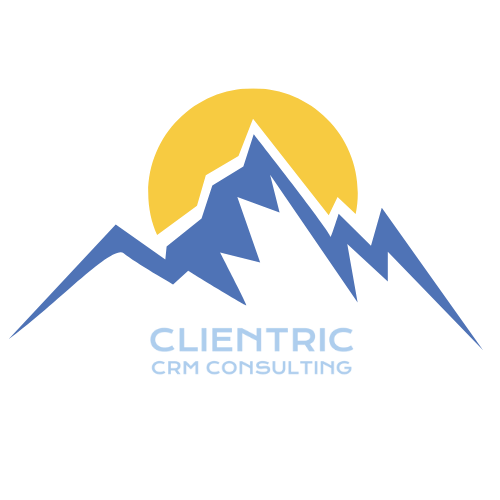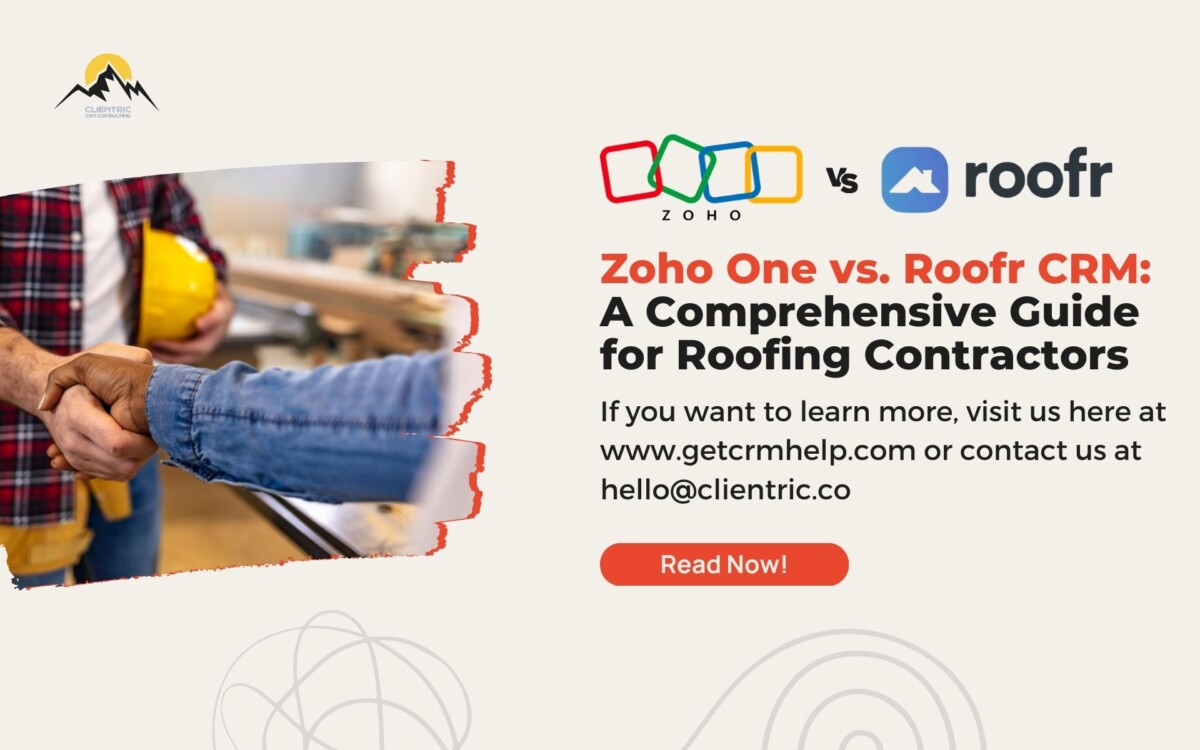Which software should you choose: Zoho One or Roofr CRM?
Welcome back to our “From Chaos to Control” series, your go-to tech playbook for contracting companies. In today’s episode, we’re diving into a detailed comparison between Zoho One and Roofr CRM. By the end of this blog post, you’ll have a thorough understanding of how these CRMs stack up in features, user-friendliness, pricing, customer support, integration capabilities, and ideal customer size. Let’s delve into the details!
1. Features and User-Friendliness:
Zoho One:
Offering over 40 business applications, Zoho One is an all-in-one customizable solution for businesses of various sizes. Its extensive features cater to CRM, project management, finance, HR, marketing automation, and more. While user-friendly, Zoho’s customization setup can be overwhelming.
Roofr CRM:
Tailored for roofers, Roofr CRM seamlessly integrates with Roofr’s popular Instant Estimator, Measurement, and Proposal tools. Unique in its active development, Roofr CRM brings specialized features for project management, material tracking, and customer communication in the roofing industry. However, being new, it lacks some essential features like a calendar and production scheduling system.
2. Pricing and Customer Support:
Zoho One:
Operating on a subscription-based model, Zoho One offers cost-effective plans based on the number of users and business scale. Priced at $37/person/month with yearly all-employee pricing, Zoho’s customer support could be improved, often directing users to partners for assistance.
Roofr CRM:
Tailored pricing caters specifically to roofing businesses, offering the CRM standard with the highest tier of Roofr at $200/month. Despite the higher cost, Roofr’s customer support shines, with team members, including the CEO, actively engaging in roofing industry forums, providing hands-on support.
3. Integration Capabilities and Customizability:
Zoho One:
Known for strong integration capabilities, Zoho One seamlessly connects with various third-party applications. Its open architecture ensures high customizability, adapting to unique business processes.
Roofr CRM:
Integrates with Roofr’s tools and with external apps like Company Cam and Zapier. Consider your integration needs thoroughly when exploring this CRM.
4. Ideal Customer Size:
Zoho One:
Scalable for businesses of various sizes, Zoho One works best for mid-sized roofing companies to growing enterprises. Smaller companies might find unnecessary complexities.
Roofr CRM:
Tailored for smaller roofing companies, Roofr CRM is ideal for those who need fewer customization capabilities. Limitations may arise as you scale, but constant updates and development are expected.
Choosing between Zoho One and Roofr CRM depends on your business’s priorities, budget, and specific needs. Zoho One’s robust customization, automation, and scalability make it an excellent choice for comprehensive operations.
Roofr’s CRM, on the other hand, caters specifically to the needs of smaller roofing companies, offering essential features for streamlined work. Despite its newness, Roofr CRM holds promise with ongoing development.
We recommend testing demos, gathering recommendations, and considering feedback from peers for an informed decision. If you need personalized guidance, book a free consultation call with our team.
Thank you for joining us in today’s comparison between Zoho One and Roofr CRM. To stay updated on more episodes of our “From Chaos to Control” series, subscribe to our Clientric YouTube Channel. If you have any questions or specific topics you’d like us to cover, please share your thoughts in the comments section below.
If you have further questions or are interested in working with us, please contact us anytime at hello@clientric.co, or you can visit our website at www.clientric.co. At Clientric, our goal is to help you decrease the chaos in your business so you can gain more control and focus on what really matters.



